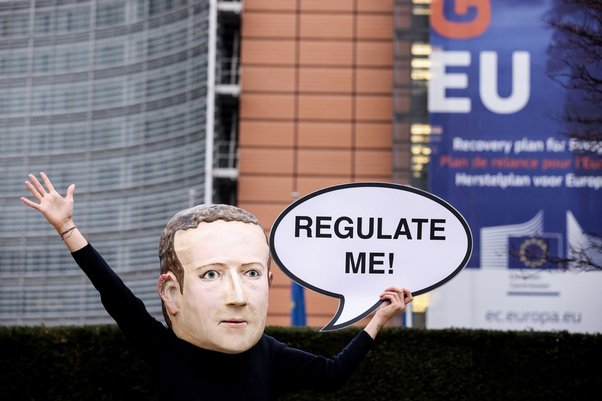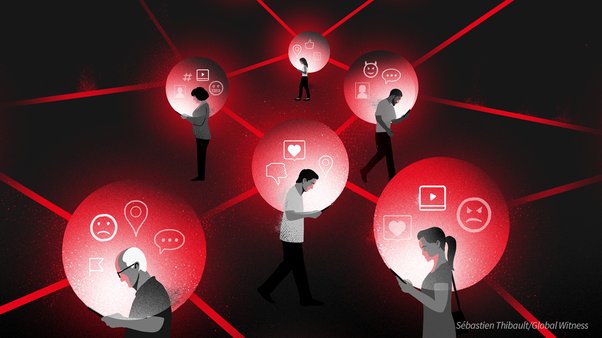Big Tech companies are amongst the most powerful, influential, and wealthiest the world has ever seen. In the face of new regulation, Big Tech has amassed a powerful lobby in Brussels to protect their interests.
In fact, the EU tech lobby now surpasses traditional big spenders such as finance, fossil fuels and pharma spending more than €97 million annually lobbying the EU. Google spends the most, with €5.75 million, followed by Facebook's €5.5 million, and Microsoft's €5.25 million.
As the New York Times put it: “the growing influence industry is alarming European Union officials who believe that Big Tech is contributing to a Washingtonization of Brussels, giving money and connections an upper hand over the public interest.”
Under the banner of the European campaign “The People Vs Big Tech”, Global Witness is launching a new Twitter Bot - @EUTechWatch - which monitors Big Tech’s access to EU officials. Every time a senior EU Commission official is scheduled to meet with a Big Tech lobbyist we’ll be shining a spotlight by tweeting about the meeting and requesting information on what was discussed via Freedom of Information Requests.
Lobbying is a legitimate part of the democratic process. These companies have deep expertise on digital issues and will be directly impacted by the legislation under discussion in Brussels. They should be consulted, and their views heard.
But the sheer scale of the lobbying force Big Tech has at its disposal and the disproportionate access they have to policymakers compared with civil society organisations and other interest groups raises questions about the integrity of policymaking process. This is particularly important now, as two major legislative files – the Digital Services Act and Digital Markets Act - are currently being negotiated in Brussels.
Global Witness analysis of the LobbyFacts database run by Corporate Europe Observatory and LobbyControl suggests around €150 million has been spent on EU lobbying for Big Tech since 2010, either by the companies themselves or their biggest trade associations. Big Tech lobbyists held around 1,000 meetings with senior Commission officials, since November 2014 when officials began disclosing lobbying meetings. This is an average of more than 2.8 meetings a week. It also doesn’t look like Covid has reduced the scale of lobbying much. Since January 2020 there have been almost 200 meetings between Big Tech lobbyists and senior Commission officials.
Our analysis and tracker @EUTechWatch monitors the five Big Tech companies – Amazon, Apple, Facebook, Google and Microsoft – and the biggest trade associations who lobby on their behalf. As such, this is only a conservative overview of Big Tech’s lobbying activities, and doesn’t include the many think tanks, law firms, consultancies, or academics who receive Big Tech funding and lobby the EU institutions.
While there are inherent difficulties in tracking the true network of influence of Big Tech on EU policymaking, it is clear that Big Tech is already engaged in a broad lobbying campaign to stop stronger regulation. Last year a leaked document shared Google’s lobbying plans in Brussels, laying out in detail how they intended to undermine the Digital Services Act, including by bringing in academic allies to raise questions about the new rules and using officials in US embassies to influence the negotiations.
We also know more about the types of narratives used by Big Tech lobbyists. Just a few weeks ago, a new report by Corporate Europe Observatory and LobbyControl highlighted how Big Tech often publicly supports regulation, while behind the scenes pushing for them to be soft rules. Another common line is to reframe regulation as a threat to consumers and small businesses.
EU policymakers have an imperative to make sure technology serves people and doesn’t put their communities and democracies at risk – whether they do so will depend on a willingness and ability to identify and call out the outsized influence of the Big Tech lobby on EU policymaking.
Follow @EUTechWatch to see Big Tech lobbying in action and help us remind legislators that they should be serving the people, not Big Tech.


